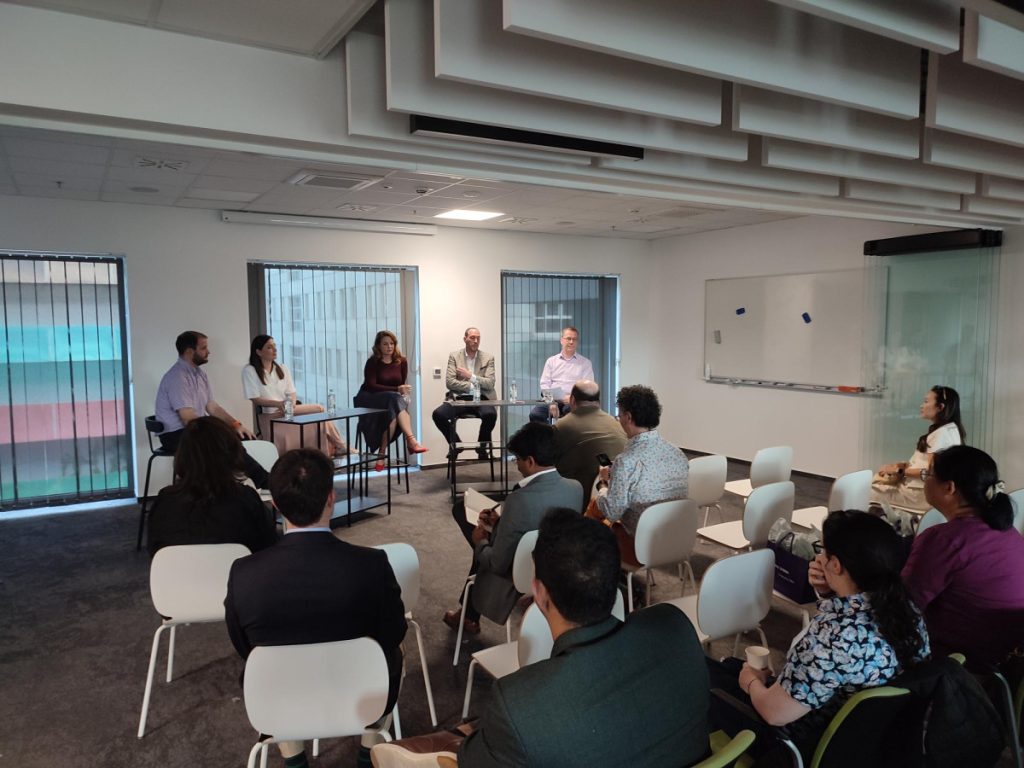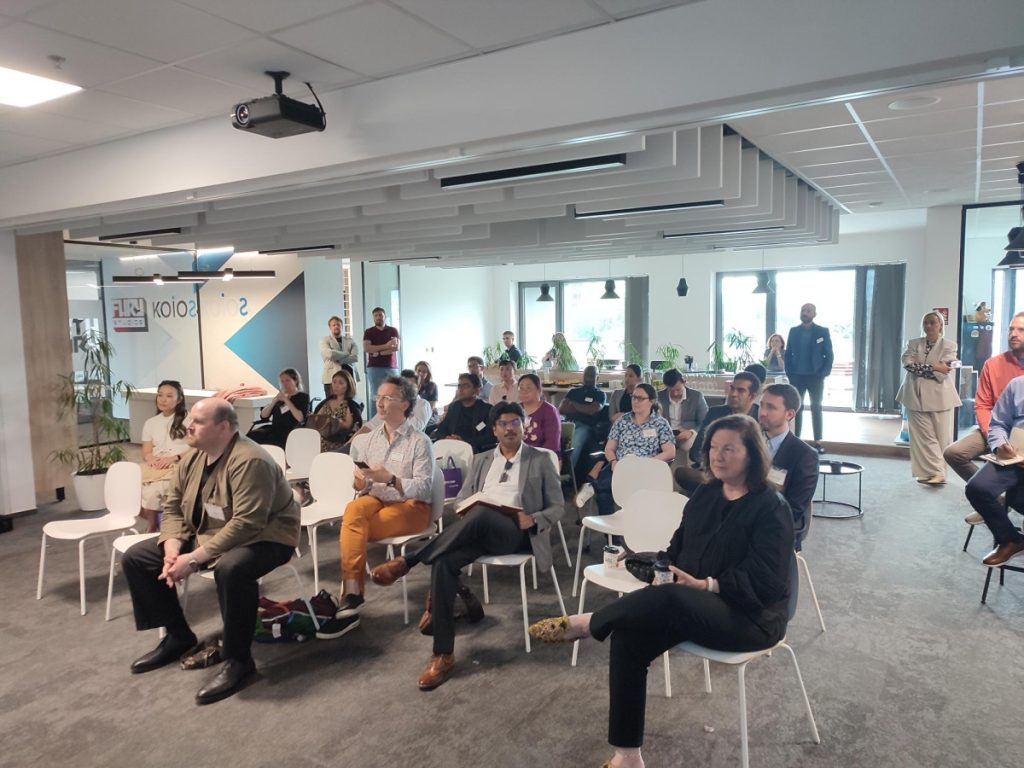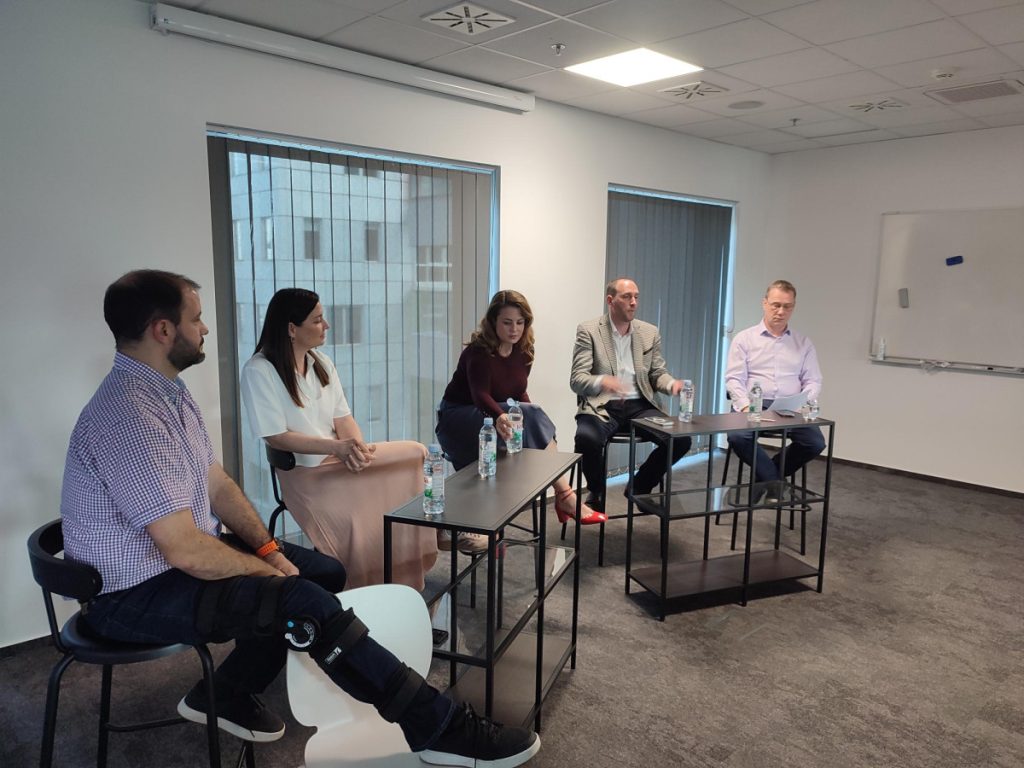
Bridging Continents Through Fintech: NYU Stern MBA Visit to Koios
Last week, 20 MBA students from NYU Stern School of Business dropped by the Koios office in Zagreb for a deep dive into Croatia’s fintech ecosystem. The visit was part of their European fintech tour, and our CEO, Stjepan Pavlek Posavec, hosted a panel that brought together four speakers with firsthand experience building financial technology in the region.
The lineup included:
-
Morana Jerković, project lead at Koios
-
Ivan Kurtović, CEO of InterCapital Asset Management
-
Magda Milas, business development manager for international markets at Monri Payments
-
Fedor Jan Bauer, board member at Keks Pay
Each brought a different perspective—from asset management and mobile payments to blockchain-based infrastructure and digital banking.
A Working Snapshot of Fintech in Croatia
The panel kicked off with a simple question: Where does Croatia stand in fintech today? According to Monri’s Magda Milas, the market is fast-moving, open to digital payments, and perhaps more agile than some larger European countries. Regulation isn’t always perfectly aligned with startup needs, but compared to five years ago, the shift is noticeable.
From there, the conversation moved into real projects.
Morana Jerković talked through Koios’ development of a blockchain-based fund management platform, touching on the need for explainability in tokenized products—especially when user trust is still fragile in this space.
Ivan Kurtović introduced Genius, InterCapital’s robo-advisory app that helps users invest based on their risk profile. The idea: make investment accessible without dumbing it down.
Keks Pay and Monri outlined how mobile payments took off in Croatia faster than expected. Strong infrastructure helped, but so did consumer habits. As Fedor Jan Bauer put it, “Croatians got comfortable with digital money quickly—faster than some neighboring countries, even.”
Trust, Regulation, and Scaling: The Core Themes
One topic came up repeatedly: trust. Robo-advisors and tokenized assets don’t come with human advisors or a bank branch to walk into. How do you get users to trust a system they don’t fully understand? Education helps. So does transparency. But as several speakers noted, the leap of faith is still a hurdle.
Another key discussion point was scaling. Could fintech solutions built in Croatia—like Genius or Keks Pay—expand to other European markets? The consensus: maybe, but not without adapting. Regulation, market behavior, and payment infrastructure vary widely across Europe. What works here might not plug in elsewhere without serious adjustments.
On regulation, the tone was cautiously optimistic. The Croatian environment isn’t perfect, but it’s more supportive than it used to be. Fintech still moves faster than regulators, but the gap is closing.

Beyond the Products: What Fintech Is Trying to Solve
There were also bigger questions: How do we reach people who’ve never invested before? Can we build tech that doesn’t just replicate old systems but actually improves them?
Fintech in Croatia—like elsewhere—isn’t just about convenience. It’s also about inclusion. That means mobile apps for users in rural areas. Automated investing tools that don’t require a finance degree. Payment systems that work across borders.
A Solid Two Hours
The panel ran just over two hours, including a lively Q&A. The visiting group from NYU Stern brought sharp questions and real-world insight—many of them are already working in finance, consulting, or tech, and the discussion reflected that. This wasn’t a classroom-style lecture, but a peer-level exchange about strategy, regulation, and scaling in fintech.
It was a valuable reminder that innovation isn’t happening in silos. Whether in New York or Zagreb, fintech is being shaped by the same big forces—and the best ideas often come from open, informed conversation across borders.
We appreciated the chance to connect, and look forward to seeing where these professionals take their ideas next.
